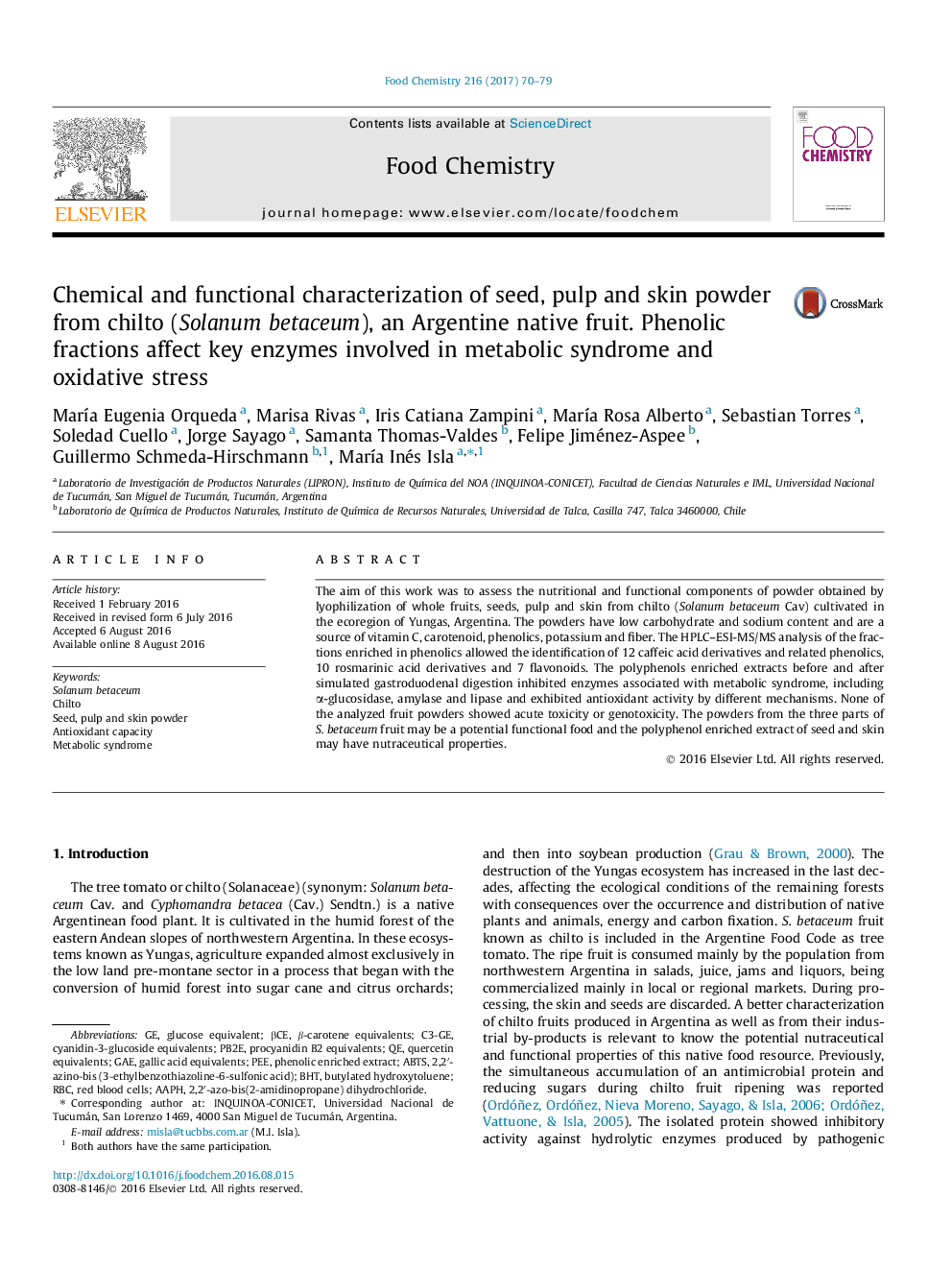| Article ID | Journal | Published Year | Pages | File Type |
|---|---|---|---|---|
| 1183051 | Food Chemistry | 2017 | 10 Pages |
•Lyophilized powder from skin, pulp and seed of Solanum betaceum were investigated.•The nutritional composition was assessed by standard methods.•The extracts were evaluated on key enzymes to metabolic syndrome.•The main phenolics were rosmarinic acid and caffeic acid derivatives.•The phenolic-enriched extracts inhibited the α-glucosidase, α-amylase and lipase.
The aim of this work was to assess the nutritional and functional components of powder obtained by lyophilization of whole fruits, seeds, pulp and skin from chilto (Solanum betaceum Cav) cultivated in the ecoregion of Yungas, Argentina. The powders have low carbohydrate and sodium content and are a source of vitamin C, carotenoid, phenolics, potassium and fiber. The HPLC–ESI-MS/MS analysis of the fractions enriched in phenolics allowed the identification of 12 caffeic acid derivatives and related phenolics, 10 rosmarinic acid derivatives and 7 flavonoids. The polyphenols enriched extracts before and after simulated gastroduodenal digestion inhibited enzymes associated with metabolic syndrome, including α-glucosidase, amylase and lipase and exhibited antioxidant activity by different mechanisms. None of the analyzed fruit powders showed acute toxicity or genotoxicity. The powders from the three parts of S. betaceum fruit may be a potential functional food and the polyphenol enriched extract of seed and skin may have nutraceutical properties.
